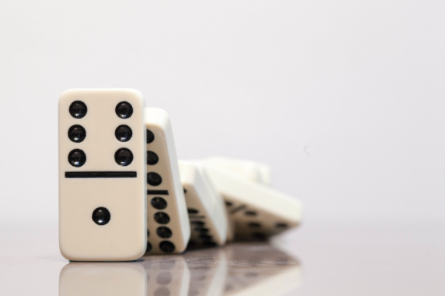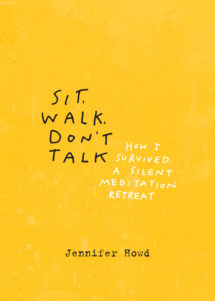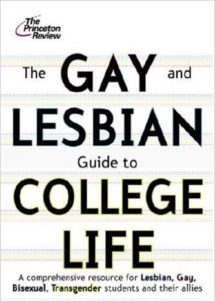Are You a Strong Domino?
Happy New Year, Friends! ‘Tis the season for personal resolutions. For setting intentions for the purpose of bettering our lives in some way…. But, as time drifts further away from that fresh, new year energy—we might start feeling a nagging tug toward our “old,” pre-resolution ways.
I know I’m starting to feel that tug. Are you?…
This year, my partner, Kate, and I resolved to eat healthier. Specifically, we decided to give up sugar, cow dairy, and all grains, except quinoa for (at least) the next 40 days. The reason Kate and I resolved to eat healthier is because we want to feel healthier. Sugar, in particular, isn’t good for our physical—or mental health. It gives us both mood swings and varying levels of anxiety. And, we’re nicer people to ourselves, to each other—and to the rest of the world—when we don’t eat it.
Now, I haven’t eaten sugar, cow dairy, or grains in over ten days. And, it’s been challenging…. But, having eliminated these foods from my diet, I feel much more clear-headed. And my anxiety levels have been, literally, non-existent. However…. I’m starting to get bored with the limited flavor profiles and textures of the foods I’m eating. I’m yearning for more variety. And I’ve been craving bread.
Like, big time.
I went to a baby shower this past weekend and, literally, salivated at the sea of homemade pupusas waving around in front of me. I had to physically block my mouth with my hand to keep myself from eating one of these things. Just look at this picture, people…
I wanted to shove ten of these puppies into my mouth and then make a beeline for the layer cake.
But I didn’t.
Because I kept hearing this phrase in my mind that they say at my son’s school, “Be the strong domino…”
Like, “Remember the force, Luke….”
But different.
Being the strong domino is about standing in your power. It’s about going against the stream. And, I managed to stand tall within the current of pupusa eaters at that shower. Kate and I both managed to stand tall. We didn’t succumb to our old eating ways. We ate the raw nuts and salads that we brought from home. We were strong dominos. Jedi dominos. Powerful, against-the-stream-swimming dominos!
And, of course, people at the shower asked us why we weren’t eating what everyone else was eating… So, we shared our resolutions to eat healthier. Most of them said how they admired our resolve and revealed how they wanted to eat healthier, too—but that they just couldn’t manage to do it… How every time they went out with their friends to parties and restaurants and bars, the temptations were just too much for them.
All this got me thinking… Kate and I made the commitment to eat healthier for ourselves. But, would we like to see our friends eat healthier, too?… Absolutely. And, would the world be a kinder, gentler place if everyone universally stopped eating just one harmful food, like, say sugar?… Probably—although, not for the first few days because DANG those withdrawal symptoms can be heinous, people…
Beyond the benefits of sticking to our personal resolutions to eat healthier for ourselves—and based on the feedback from those around us at the shower—I started wondering if we also had a social responsibility to follow-through with our personal resolutions. Coincidentally (or not…), just a few days prior to the shower, I’d heard some information that lead me to believe the answer to that question might be a resounding, YES….
I mentioned in last month’s post that I recently got back from a month-long coworking program at a modern monastery in Northern Vermont (The Center for Mindful Learning or “CML”).
One of the monastics at CML named Daniel Thorson hosts a podcast entitled, Emerge, in which he talks with thought leaders about ways to build a more beautiful future. Daniel’s latest episode, “Planetary Transformation through Culture Design,” features a conversation with guest, Joe Brewer, who has a unique background in physics, math, philosophy, atmospheric science, complexity research, and cognitive linguistics. Basically, he’s super smart.
In the podcast, Joe says:
“These two men, Nicholas Christakis and James Fowler did a longitudinal study in the United States in which they asked a group of people about their behaviors over a period of 40 years. But they also asked them questions about their peers. They basically built a very unusual data set. And what they found was that people were more likely to stop smoking if the people around them stopped smoking. They were more likely to have healthy diets if people around them had healthy diets.
And, as they looked across this data set, as well as others they conducted—they found that 80% of our behavior is basically imitation of our peers, of the people who are around us. So, if you want to change your behavior. You don’t go through this deep, internal, self-help process. You change who you’re around…
If you’re around a bunch of people who are negative and complain. You’re going to be prone to being negative and to complain. If you’re around a bunch of people who are couch potatoes, eat fast food and are obese. Then you’re likely to sit around, eat fast food, and be obese. Recognizing the fundamental unit is not the individual, but the social group—the best way to act out your intentions, is to change who you associate with […].
You don’t have to go to the extreme of joining a commune—although plenty of people are doing that. It can be much more informal than that. It could be… there’s this person who I hang around who’s kind of a jerk. Maybe they’re sexist. And I don’t like being around sexist people. I’m just going to stop hanging around them. In these little ways, we’re being culture designers. “
A lot was said there, yes? But what caught my attention were two things:
1) “80% of our behavior is basically imitation of the people’s behaviors who we’re around.”
And….
2) “If you want to change your behavior. You don’t go through this deep, internal, self-help process. You change who you’re around.”
Now, the first statement isn’t a new idea. But now there’s scientific evidence that proves it.
The second statement, however, caught my attention for another reason… Because, you might not know this about me—but I’m the type of person who goes through deep, internal self-help processes… In fact—I’ve pretty much devoted my life to these types of processes. And, I’ve not only seen significant results in my own life from committing to these processes—but I’ve also seen significant results in the lives of those around me because I’ve committed to these processes. I’ve witnessed the very effect of what Joe mentioned—that 80%—but from the standpoint that I’ve seen the changes I’ve made in my own life ripple outward to effect my immediate family and close friends.
Case in point—a few years ago, I was the only person who meditated in my family regularly. Today, both Kate AND our 8 year old son meditate regularly, too.
I’m a strong domino.
To me, all this points to Gandhi’s quote,“Be the change you want to see in the world. Because the change we’re being in OUR worlds effects 80% of the people we’re around—and that 80% continues to ripple out and out….
In the episode of Emerge that I mentioned, Joe talked about the insights of science relating to contemplative practices—and how they’re in a powerful marriage that’s greater than either of the parts are on their own. So, I don’t think he meant to suggest deep, internal processes aren’t beneficial.
As I see it, there are actually two stages for creating success when we’re looking to foster sustainable change in both ourselves, and in society…. One nodding to the science of networks, as Joe mentioned. And the other nodding to the wisdom of contemplative practices.
1) Stop hanging out with the people who are displaying the behaviors we don’t want, and seek out friendships with those who are displaying the behaviors we do want to adopt. This helps us gain the strength needed to change our behaviors and create new ones.
And….
2) Once we have the strength to stand tall in our new behaviors, we must personally resolve to stay committed to our intention to continue these new behaviors. One way to help ourselves do this is by undertaking a dedicated deep, internal, practice—such as meditation and mindfulness. These practices help us to “be the strong domino” when we’re in challenging environments (like pupusa-laden baby showers, bars, etc.).
So, I say, YES, we have a social responsibility to follow through with our personal resolutions! Because science is now proving that our personal resolutions aren’t just about us, personally, anymore.
Be a strong domino.
And be the change YOU want to see in your world.




0 Comments